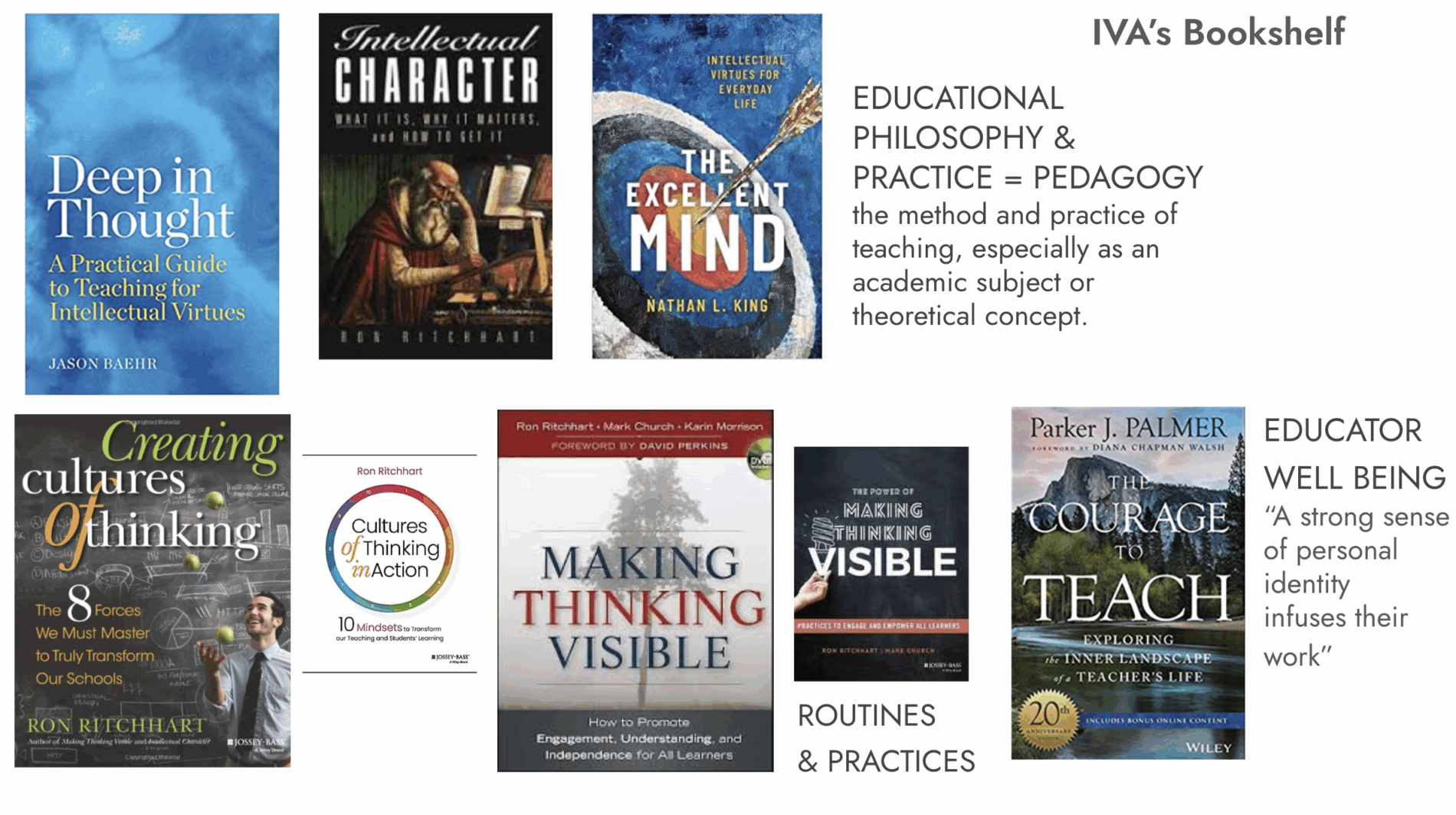
What is educating for intellectual virtues?
Educating for intellectual virtues is an approach to classroom teaching and other educational activities that is aimed at helping students grow in intellectual virtues, which are the deep personal qualities or character strengths of a good thinker or learner. Intellectual virtues include qualities like curiosity, attentiveness, open-mindedness, intellectual humility, intellectual autonomy, intellectual courage, and intellectual tenacity.
While good education has always fostered growth in intellectual virtues, it is possible to educate in ways that are intentionally and systematically aimed at this goal. That’s what educating for intellectual virtues is all about.
Importantly, educating for intellectual virtues is not an alternative to instruction in traditional academic subjects like math, English, history, and science. Rather, it is a way of helping students approach and engage with these subjects — a way that is personal, thoughtful, and active. *This content comes directly from the work of Jason Baehr. Learn more at intellectualvirtues.org.
How can we teach for intellectual virtues?
To learn more about an intellectual virtues approach to education, you can order Deep in Thought: A Practical Guide to Teaching for Intellectual Virtues. This resource guide is written for teachers and offers a comprehensive account of educating for intellectual virtues, including what intellectual virtues are, why they are valuable, and what it looks like to foster intellectual virtues inside the classroom. Written for educators at all levels, Deep in Thought (Harvard Education Press) is a comprehensive guide to teaching for qualities like curiosity, open-mindedness, intellectual courage, and intellectual humility. Author and IVA’s co-founder Dr. Jason Baehr has written extensively on each of the intellectual virtues. Our faculty and staff as well as our students study the virtues directly in our Advisory program. To read further about what intellectual virtues are, why they matter, and what it looks like to nurture them in a classroom setting click here. Dr. Baehr also created an intellectual virtues implementation guide available online called Cultivating Good Minds, a valuable resource for our school.
How has IVA systematically implemented intellectual virtues education?
IVA’s educators desire ongoing growth in intellectual character and deep learning in an inquiry-based culture of thinking. As a staff we read, think and consider together. Recent academic writing and the timing of California’s Common Core Standards supported a comprehensive approach to curriculum, instruction, social emotional learning and behavior support all aimed at meaningful growth in intellectual character. Researchers and authors present related concepts such as Angela Duckworth’s work on grit, Carol Dwek’s work on growth mindset, and Jal Mehta and Sarah Fine’s book In Search of Deeper Learning (2019). Approaches to learning and relationship like restorative justice, trauma informed practices and anti-bias education have influenced a view of the whole child in relationships at school.
What are thinking routines and how are they connected to virtues education?
Educational strategies called Thinking Routines developed by researchers at Harvard’s Project Zero and related writing has continued to inform and provide content for ongoing professional development. IVA has adopted thinking routines in our regular instructional practices in each subject. These routines are engagement practices intended to make students thinking visible to themselves and each other and create a collaborative culture of thinking. The use of these routines help us to refine our patterns of thinking and listening.
Families can utilize thinking routines in their own conversations with students. Download the reference sheet that is provided to students and try out one of these Thinking Routines in your own conversations. IVA teachers have created a resource to link what intellectual virtues we hope to provide opportunities for and the thinking routines that create the vehicle. At IVA, teaching for intellectual virtue is the education framework and thinking routines are the vehicle. Thinking Routines
How can I learn more about the model?
- Check out our Resource Library below and read along with us. The bookshelf includes books and articles that our faculty and staff continue to return to as we learn and practice teaching for intellectual virtues.
- Visit the school on a tour. IVA loves to welcome groups of educators for a seminar-style classroom visit and participation in our professional development.
- Contact principal Jacquie Bryant directly at jacquie.bryant@ivalongbeach.org to set up a meeting or invite her and her team out to visit your school.
All of the implementation IVA has done is available to the community of educators who have found what we have found – that teaching for intellectual virtues is personally meaningful, formative for us as much as for our students, and an educational ideal that requires frequent concrete and realistic steps and a collaborative, authentic, risk-taking environment.

